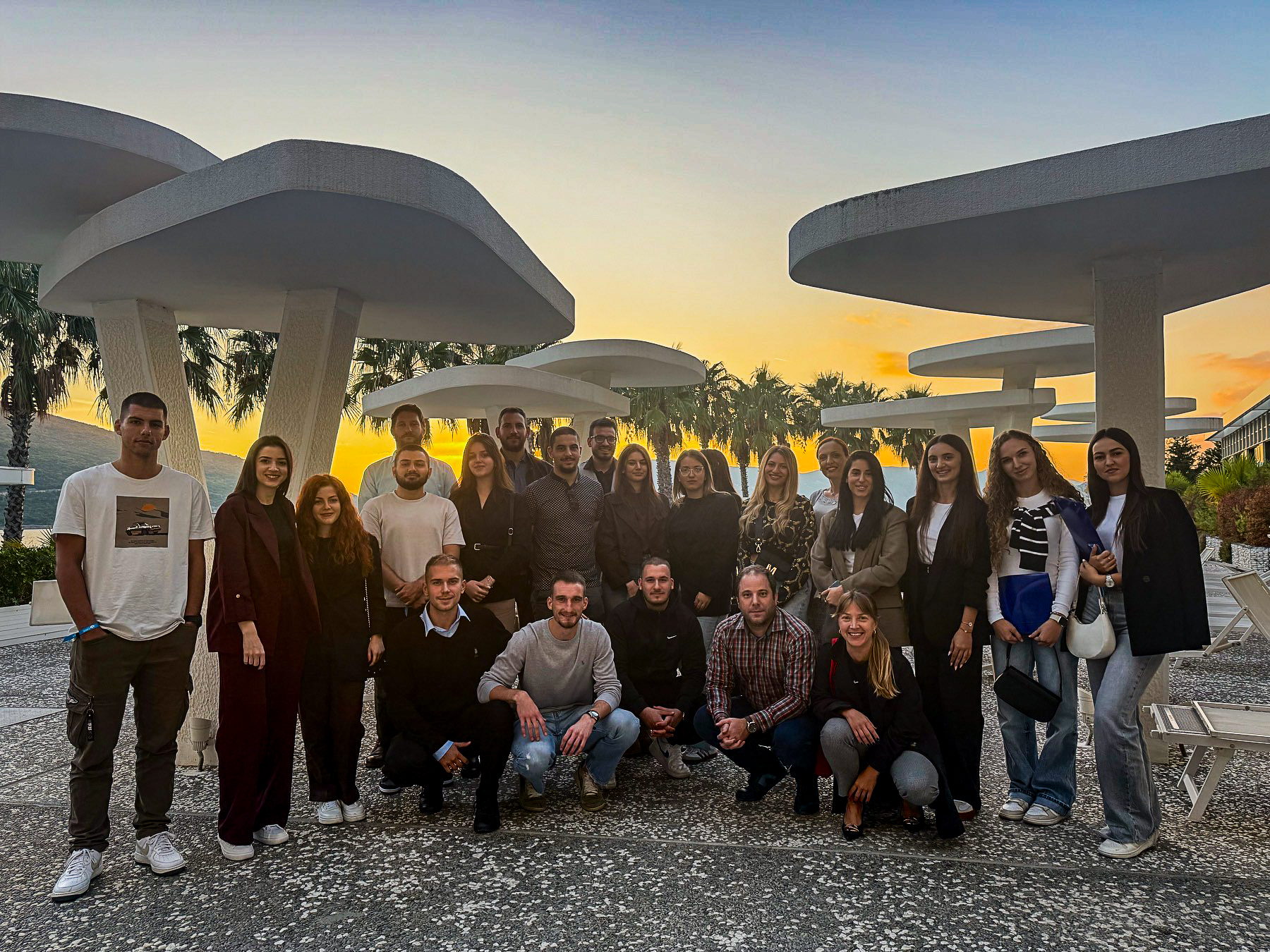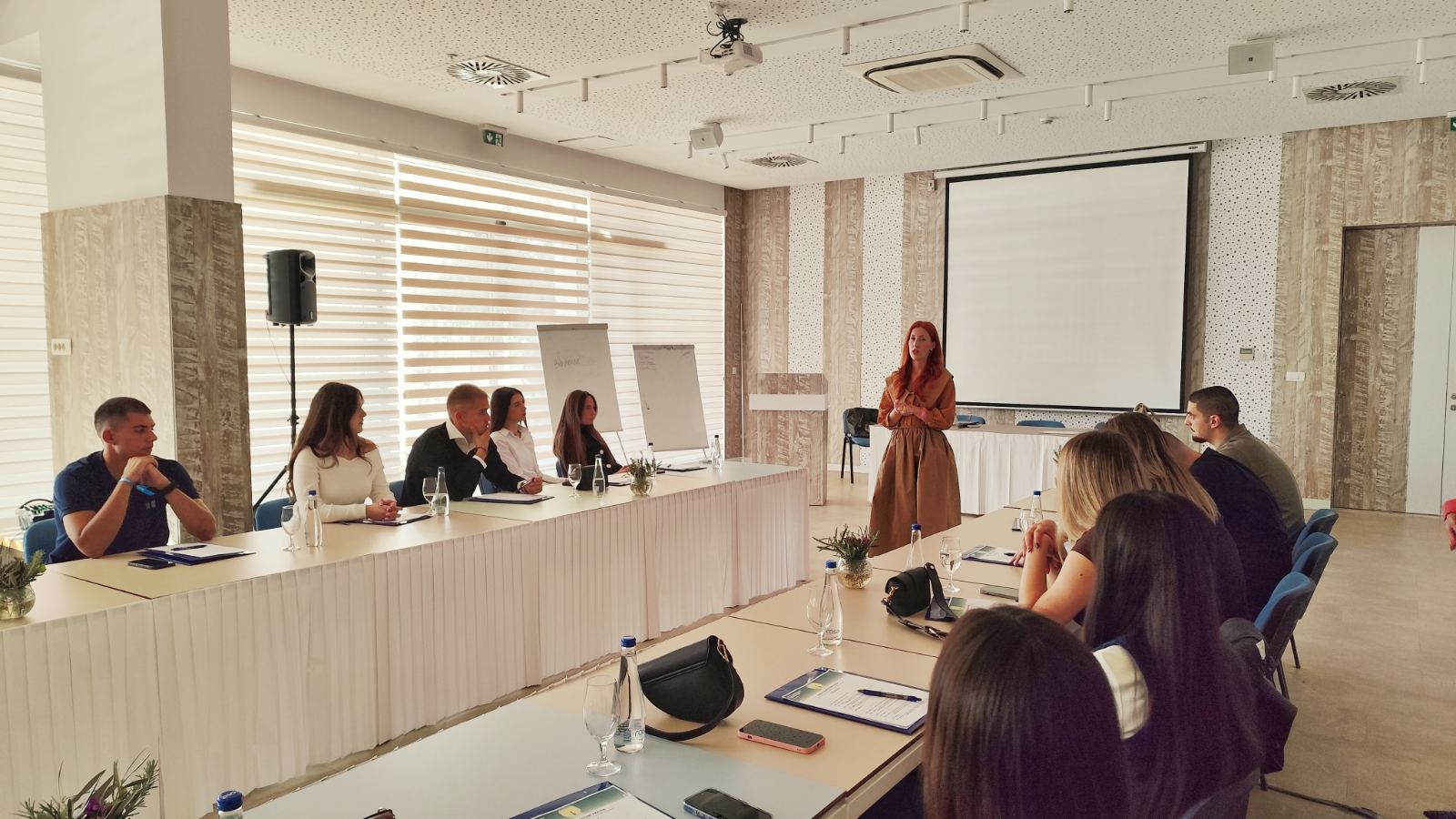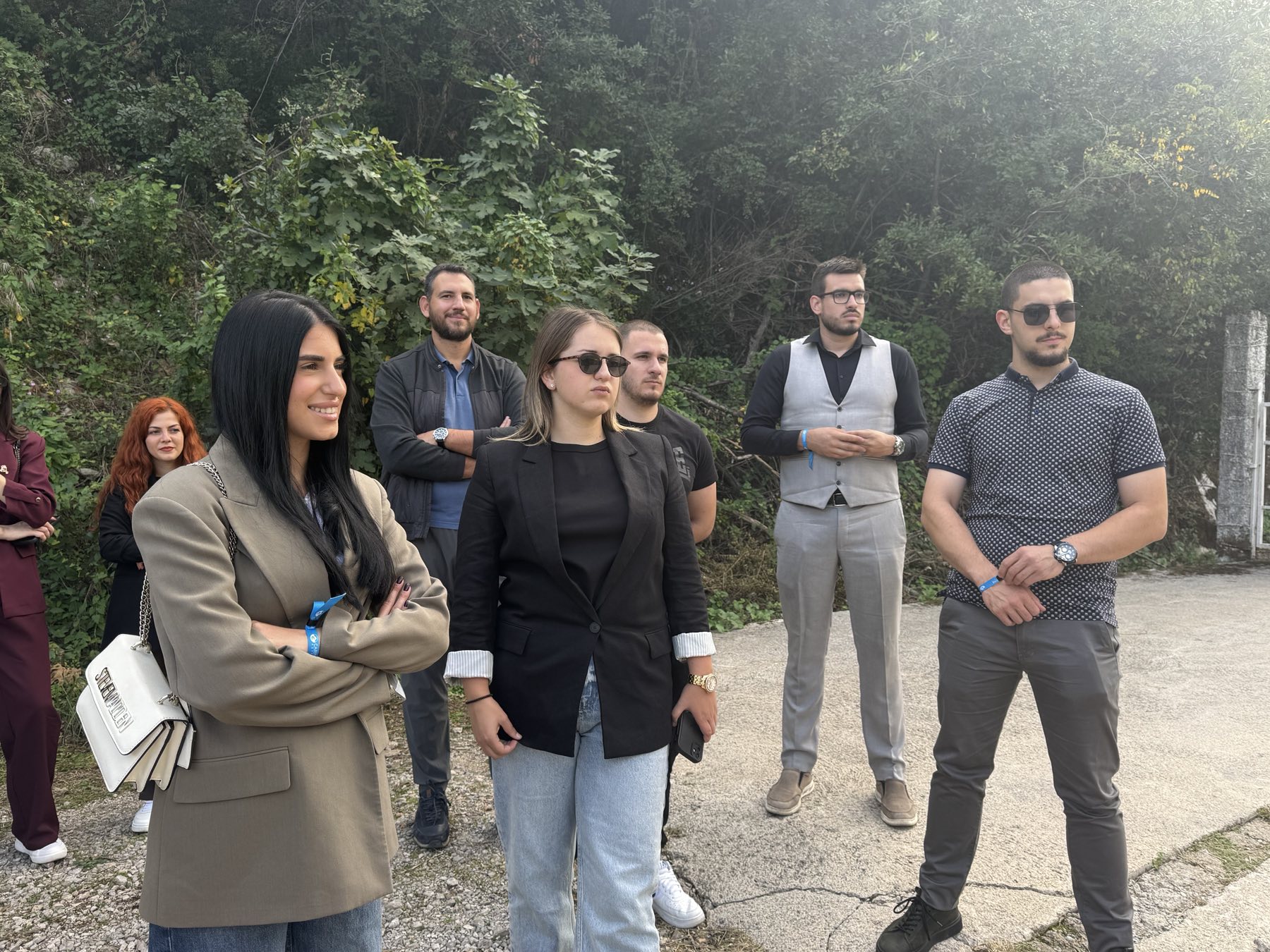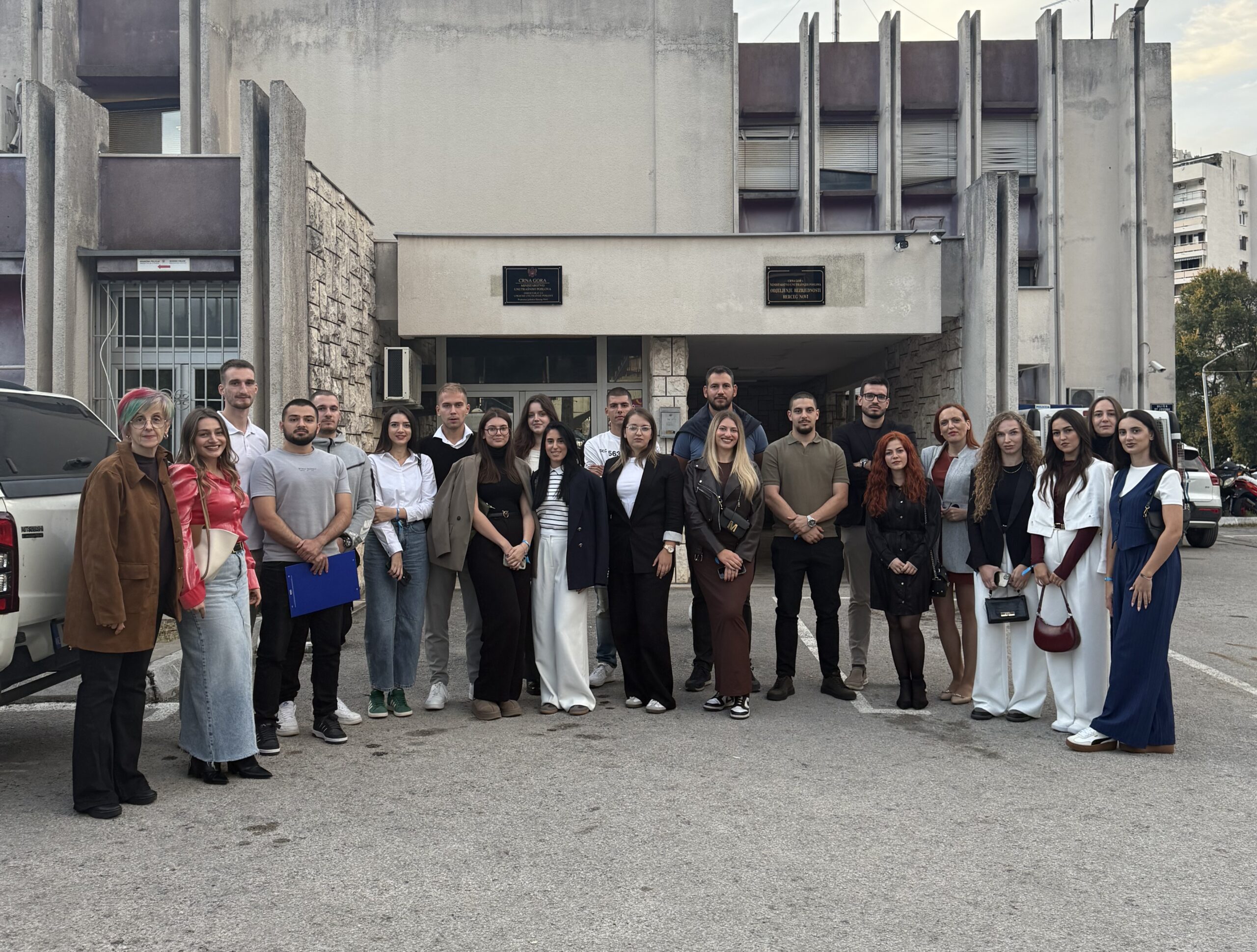“Understanding Montenegro’s past and confronting it is the only path toward a society that does not repeat the mistakes of history,” was one of the key conclusions of the first module of the Transitional Justice School, held in Kumbor (Herceg Novi) from 11 to 14 October 2025, organized by the Centre for Civic Education (CCE).
The first module of the School combined theoretical and interactive sessions, along with two field visits to sites of suffering — the Herceg Novi Police Department, linked to the war crime of the “Deportations”, and the “Morinj” detention camp.

“Understanding this case helps young people grasp the importance of responsibility, solidarity, and confronting the past as foundations for a fairer society,” said Ervina Dabižinović, coordinator at the Centre for Women’s and Peace Education ANIMA, who spoke to participants about the “Deportations” war crime at the very site from which Bosnian-Herzegovinian refugees were deported. She emphasized that the abuse of institutions, silence, and impunity can lead to the suffering of innocents. “The policy pursued by Montenegro at that time – and, unfortunately, to some extent still today – is the wrong path. That is why we must persist, through programmes like this, in sharing testimonies and knowledge to prevent the repetition of such crimes,” she said.
“It is important that students – not only law students – deepen their understanding of international humanitarian law. During the session, we discussed key concepts, sources, and objectives of this body of law, as well as the development of the notions of war crimes, crimes against humanity, and genocide, and the practical aspects of their application in modern conflicts,” said Dr. Sanja Grbović, teaching associate at the Faculty of Law, University of Montenegro, highlighting the importance of respecting humanitarian norms and adopting measures to prevent crimes.

Dr. Adnan Prekić, professor at the Faculty of Philosophy, University of Montenegro, explained the historical development of nationalism, its various forms, and its role in the creation and dissolution of the Yugoslav state, with a particular focus on the Montenegrin context. “Nationalism is not a natural phenomenon but a modern political construct that intertwines emotion, politics, and myth. Understanding its ideological roots is an important step toward building stable and democratic societies,” said Prekić.
“Anyone seriously studying or teaching about the 1990s must be familiar with the work and legacy of the International Criminal Tribunal for the former Yugoslavia (ICTY),” emphasized Miloš Vukanović, president of the Association of History Teachers of Montenegro HIPMONT. The Tribunal’s judgments, he noted, are key to understanding the wars in the former Yugoslavia, and its archives contain invaluable evidence that serves as “the foundation in the fight against revisionism and historical distortion.” Vukanović also stressed that the visit to the former “Morinj” camp had particular significance since such topics are rarely addressed in formal education.“That’s why it is crucial for young people to learn about this part of history through programs like this one — it fosters understanding, develops responsibility, and nurtures empathy toward victims,” he said.

“I wanted to learn something new and better understand what really happened in the 1990s, since these topics are almost never covered in formal education. The experience at the Transitional Justice School was truly excellent – inspiring participants, open communication, and positive atmosphere, with lecturers sharing practical experiences and valuable knowledge,” said Nikola Junković, a student of International Relations and Diplomacy at University of Donja Gorica (UDG).
“Participating in the Transitional Justice School was extremely valuable for me. I already had some knowledge of transitional justice and dealing with the past, but this programme allowed me to deepen it further,” said Marina Drecun, an MA student at the Faculty of Political Science, University of Montenegro. “The discussions were productive, stimulating, and focused on exchanging knowledge and experiences between lecturers and participants. The School provided an opportunity for personal and professional growth and motivated me to actively contribute to strengthening the culture of remembrance and transitional justice in Montenegro,” she concluded.
“I see this module as a great opportunity to broaden my knowledge of transitional justice and to learn more about the darkest period of our recent history,” said Vojislav Gluščević, a student of Humanistic Studies in the Security Studies at University of Donja Gorica. He emphasized that such topics should be an integral part of school curricula, as they foster critical thinking and understanding of contemporary history. “Although painful, especially for generations that lived through them, it is vital to talk about these events. Only by confronting the past can we address the issues that continue to burden the societies of the former Yugoslavia,” Gluščević stated.
“Participating in the Transitional Justice School was an exceptionally important experience for me,” said Dragana Otašević, founder and executive director of the NGO Centre for Migration and Multiculturalism Policy. “Through lectures by experts in international law, historians, and representatives of civil society, I gained a deeper understanding of dealing with the past, justice for victims, and the building of trust within society,” she said, adding that these topics encourage critical thinking and a research-oriented approach. “This programme helps me see how essential it is for society to confront its past in order to build the foundations of a fairer and more peaceful future,” Otašević emphasized.

The second module of the Transitional Justice School will take place in November, featuring a study visit to other sites of crimes and remembrance from the 1990s in Montenegro.
The School is part of the project “Understanding the Past to Build Trust and Transitional Justice”, implemented within the EU Support to Confidence-Building in the Western Balkans regional programme, funded by the European Union and implemented by the United Nations Development Programme (UNDP).
Maja Marinović, Programme Associate
